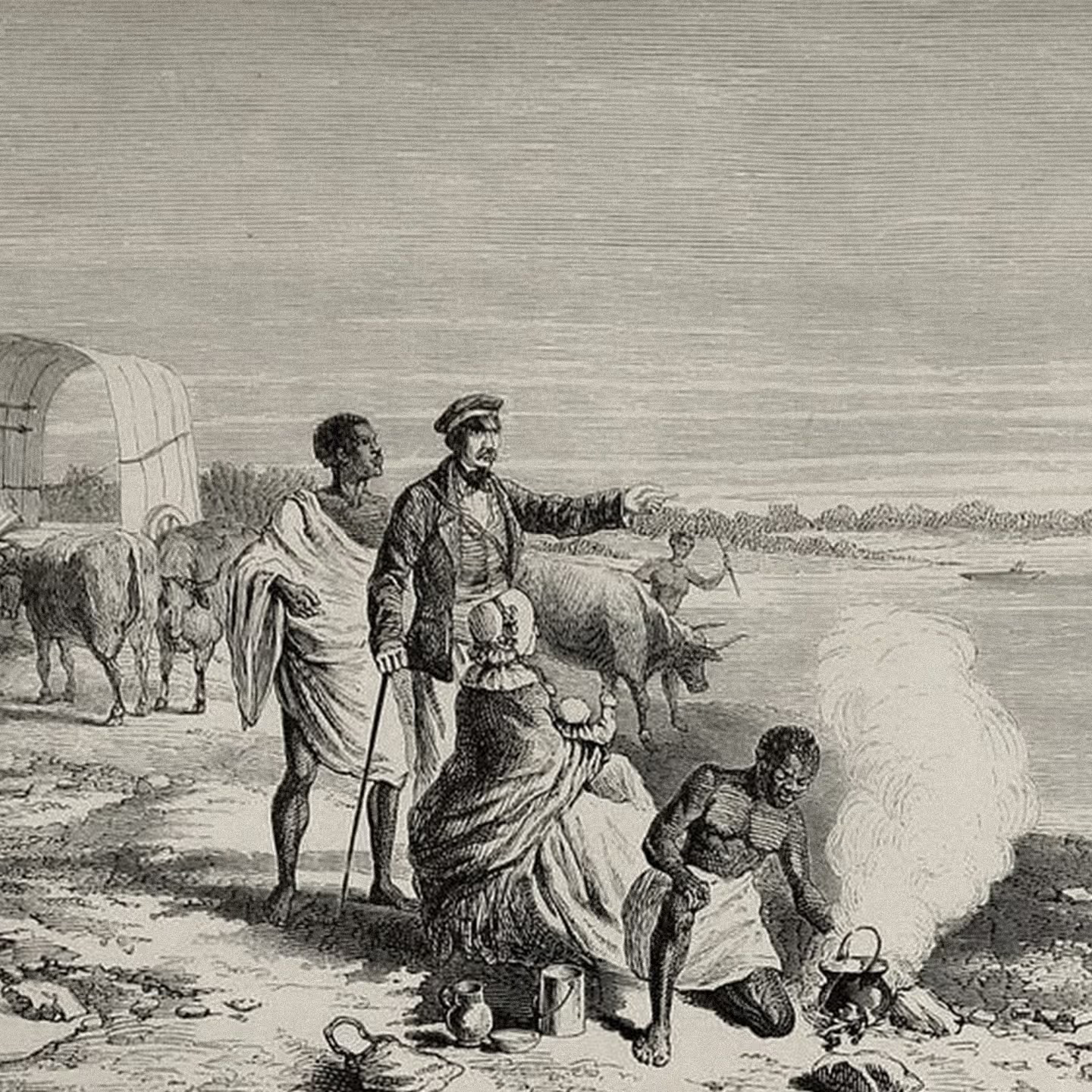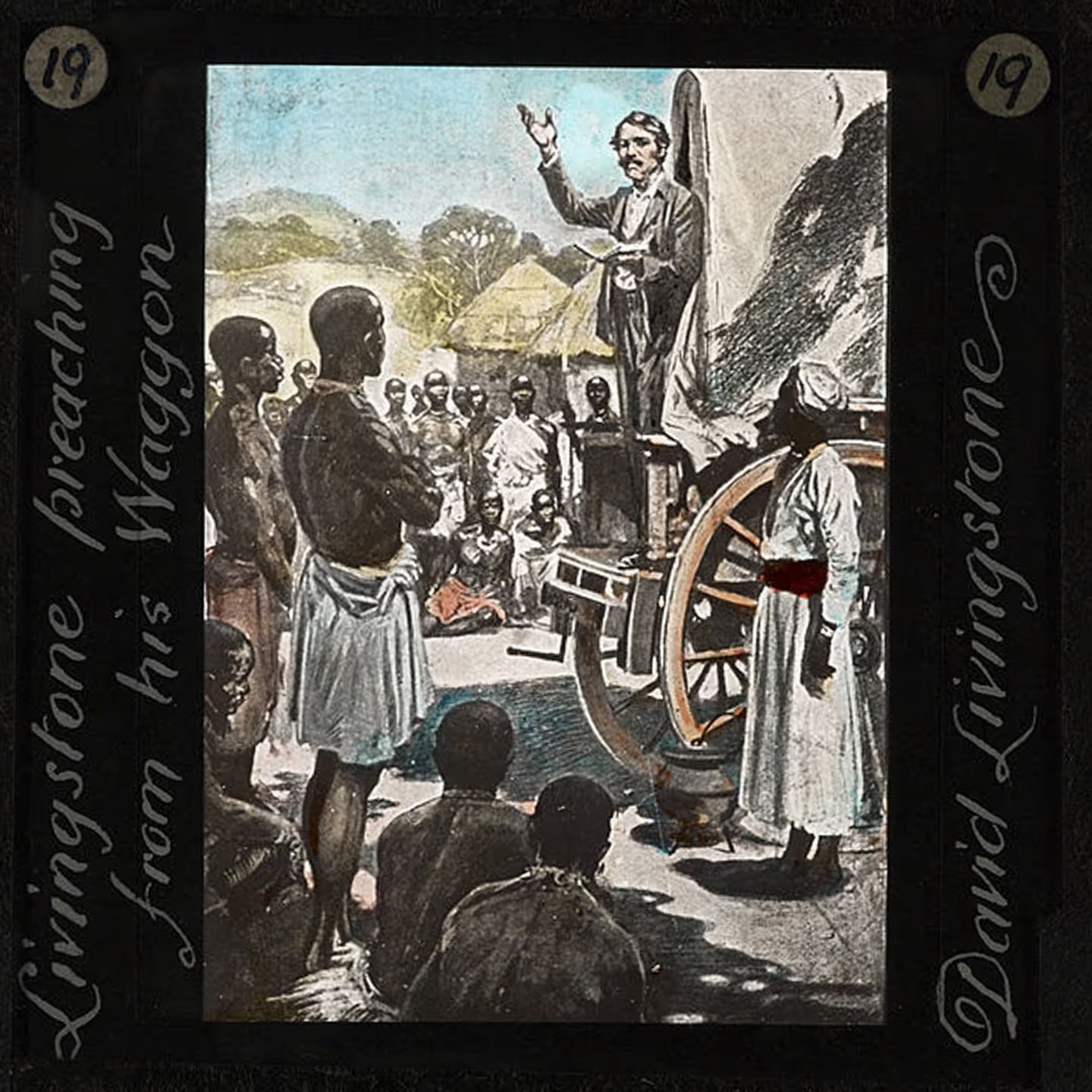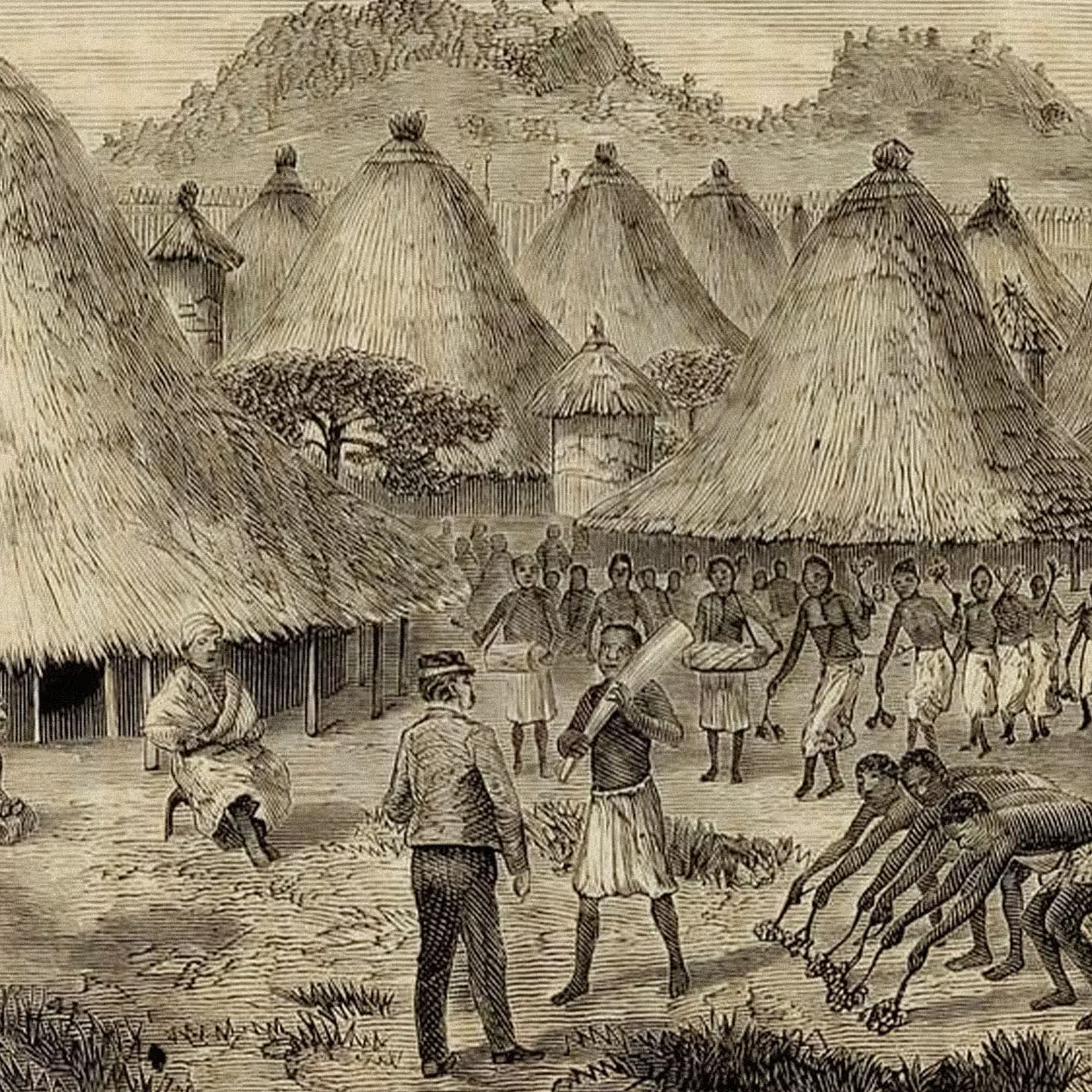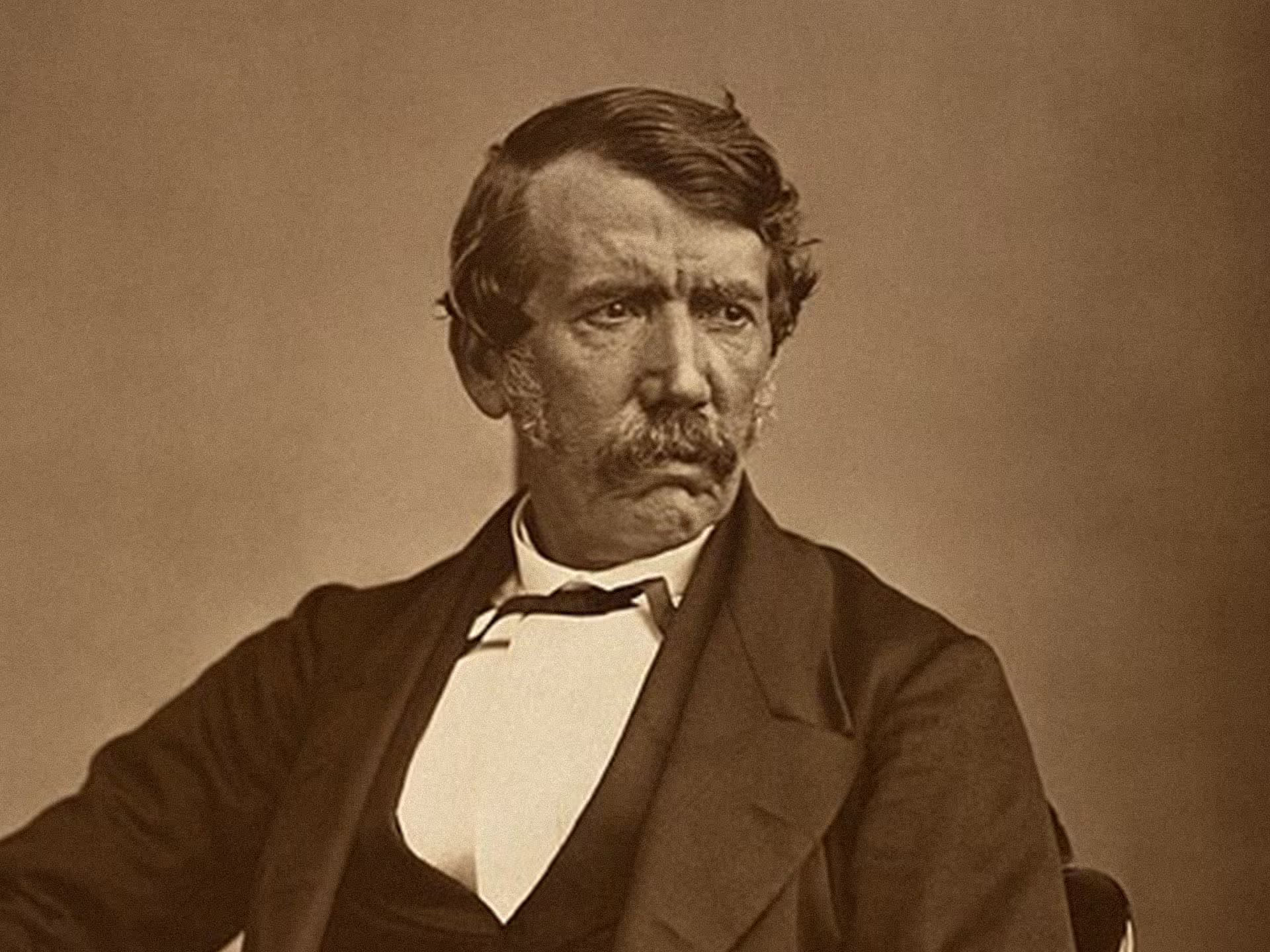David Livingstone was a famous evangelist and brave explorer to the heart of Africa. For roughly thirty years, he mapped regions that were previously unknown to European missionaries. He chartered new territories and shared the gospel in new lands, paving the way for future missionaries to live among unreached people groups in Africa.
Livingstone desired not only to see souls saved, but also to push back the darkness of slavery with the light of Christ. His advocacy against the slave trade in Africa played a significant role in the eventual abolition of the East African slave trade. His life is a powerful example of resilience through suffering, including betrayal and loneliness, and his story reveals the worthiness of following Jesus to the ends of the earth.

Early Years
Livingstone was born on March 19, 1813, in Scotland. His father was a Sunday school teacher, and his parents worked at the local cotton factory. One of seven children, Livingstone grew up in poverty and lived with his family in a single room within a tenement building for cotton mill workers.
When Livingstone was ten years old, he started working 14-hour days at the cotton mill. Despite the long hours, Livingstone was determined to educate himself. He used part of his first week’s wages to buy a Latin grammar book and studied whenever he could. In 1834, Livingstone heard the appeals of American and British churches for medical missionaries and decided to become a doctor. As a result, Livingstone began studying science, Greek, and theology to prepare himself for the mission field.
In 1838, Livingstone was accepted into the London Missionary Society. His plan was to go to China, but these dreams were soon halted because of the Opium Wars. After a conversation with British missionary Robert Moffatt, Livingstone became aware of the need for missionaries in Africa. He decided to go to South Africa and was ordained on November 20, 1840. He arrived in Cape Town on March 14, 1841.

Exploring Africa
For years, Livingstone worked as a missionary and explorer in Africa, traveling farther into the Kalahari Desert than any other European before him. He studied local cultures, shared the gospel, and journeyed to unreached places to advance the missionary frontier.
His expeditions led to significant geographical discoveries, including the first European sighting of Lake Ngami. In recognition of his achievements, Livingstone was awarded a gold medal by the British Royal Geographical Society. These journeys were not without danger, however. During one expedition in 1844, Livingstone was mauled by a lion and suffered serious injuries.
While he was recovering, Livingstone met Mary Moffat, Robert Moffat’s daughter. The two married in 1845 and had six children together. In 1852, he sent Mary and their children back to Scotland, while he continued work in Africa.
Once his family was away, Livingstone pressed even farther into the continent. He traveled with a small party of Africans, seeking not only to advance the gospel but also to explore uncharted territories. He believed that if he could find the sources of the Nile and open new trade routes, the resulting commerce would help abolish the slave trade and protect human rights. Livingstone’s discoveries, both geographically and culturally, helped fuel his later advocacy against the slave trade.
In 1856, Livingstone returned to England. He wrote about his adventures in Missionary Travels and Researches in South Africa, which sold 70,000 copies. As a result of this book, Livingstone became a public figure and spoke at universities like Cambridge, urging young men to follow in his footsteps. This book also helped to support his family, who had been living in poverty in Europe.

Later Expeditions
In 1858, Livingstone returned to Africa through a government-funded expedition. Initially, he planned to explore the Zambezi River. When this proved difficult, there were disagreements amongst his team members, and several turned back. Livingstone went instead to the Shire River and Lake Nyasa (modern-day Malawi) and preached the gospel in these unreached lands.
Although Livingstone made several geographical discoveries on this trip, his expedition was widely considered a failure. The death of his wife in 1862 was a devastating blow. Conflict amongst the team and logistical challenges further damaged his reputation. Eventually, the British government recalled the expeditions due to their limited success in aiding financial development in the region.
In 1866, Livingstone was sent out for one final expedition, financed by the Royal Geographical Society and other supporters. His goal was to find the ultimate sources of the Nile to increase commerce. Traveling with the help of local African and Asian followers, he went deep into central Africa.
The expedition was also fraught with difficulties. There was danger from the Ngoni raids, and many of Livingstone’s followers deserted him. Some defectors falsely claimed that Livingstone had been killed in the raids to avoid the consequences of their defection. One even stole his medical chest, leaving him vulnerable. Even so, Livingstone pressed on, traveling deeper into central Africa and becoming the first European to reach Lake Mweru and Lake Bangweulu.
For months at a time, Livingstone disappeared from the outside world. Concerned for his well-being, an explorer and journalist named Henry Morton Stanley set out to find him. When Stanley finally found Livingstone, Stanley greeted him with the famous phrase, “Dr Livingstone, I presume?”
Livingstone’s health briefly recovered with the aid of Stanley’s medical supplies, but in 1873, his health continued to decline, and he died. In honor of his love for Africa, Livingstone’s heart was buried in Africa. His body was embalmed and carried by sixty-nine men for nine months, over 1,000 miles of dangerous terrain. His remains are buried in Westminster Abbey.

Legacy
David Livingstone left a lasting mark on Christian missions and global exploration. He brought the gospel to previously unreached regions of Africa, often at great personal cost. His goal was to promote Christianity, commerce, and civilization in Africa, and his work led to the salvation of many throughout the continent.
In addition to his missionary work, Livingstone’s expeditions also laid the groundwork for future discoveries throughout Africa. He mapped unknown rivers, lakes, and trade routes, paving the way for future missions. He became a powerful advocate against the slave trade, believing that legitimate commerce and gospel transformation could end the suffering inflicted by the Arab slave trade. Due in part to his tireless advocacy, the British government eventually abolished the Arab slave trade in the region.
Though Livingstone faced significant criticism and personal loss, his resilience and faith have remained as a strong example to all who follow Christ. His legacy continues to inspire believers to pursue Christ wholeheartedly and to preach the gospel, even to the ends of the earth.
David Livingstone chartered new territories and shared the gospel in new lands, paving the way for future missionaries to live among unreached people groups in Africa.
Additional Resources
- Read about Livingstone's work against slavery at Desiring God.
- Read his firsthand accounts in Missionary Travels and Researches in South Africa.
